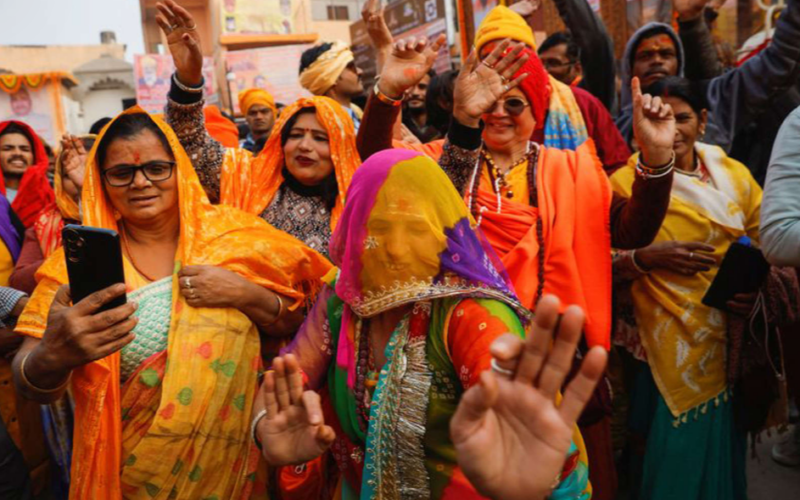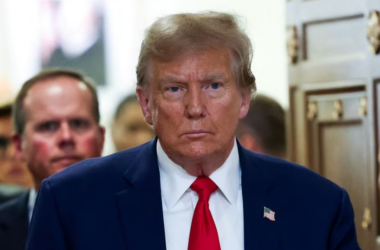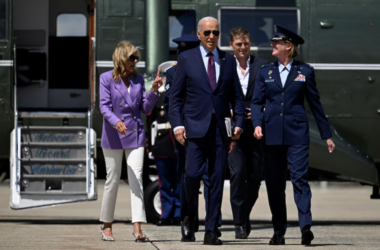Indian Prime Minister Narendra Modi spearheaded the momentous consecration of a grand temple dedicated to the Hindu deity Lord Ram on Monday. The ceremony took place at a site believed to be the birthplace of Lord Ram, holding immense significance for the Hindu majority in the world’s most populous nation. The event, portrayed as a Hindu awakening, has deep historical roots and is viewed as a crucial element in Modi’s political narrative as he eyes a rare third term in the upcoming general elections.
Modi, sharing his anticipation on social network platforms moments before the ceremony, described it as a “supernatural moment of consecration” that would evoke strong emotions. The prime minister participated in traditional Hindu rituals, chanting religious verses, placing flower petals at the deity’s feet, offering prayers, and circling a sacred flame. A military helicopter showered petals on the temple, creating a spectacle visible to millions across the nation.
The 51-inch (130-cm) tall black stone deity symbolizing the god-king became the focal point of the ceremonies. Politicians, businessmen, sports figures, and media personalities joined millions of citizens in witnessing the historic event. Streets filled with thousands clad in saffron, waving flags, dancing, and chanting religious slogans, creating an atmosphere of jubilation.
The construction of the Ram Temple fulfills a significant promise made by Modi’s Bharatiya Janata Party (BJP), rooted in a contentious political issue that played a pivotal role in the party’s ascent to power. The temple site was a source of dispute between Hindus and minority Muslims for decades, leading to nationwide riots in 1992 when a Hindu mob destroyed a 16th-century mosque. The Supreme Court’s 2019 verdict allocated the land to Hindus, ending a long-standing legal battle.
The consecration ceremony, attended by around 8,000 invitees, witnessed heightened security with over 10,000 police personnel guarding the city of Ayodhya. Security measures extended nationwide, particularly in areas prone to Hindu-Muslim tension. The temple is set to open to the public on Tuesday, expecting a daily influx of 100,000 visitors in the initial months.
The Ram Temple consecration has ignited religious fervor across India, prompting several states to declare a holiday, stock markets to shut, and homes and businesses to illuminate. Modi’s call to mark the event as another Diwali, the Hindu festival of light, resonated widely. Commentators describe the event as unparalleled in history, representing a watershed moment in the country’s cultural and religious landscape.
As the Ram Temple opens its doors to the public, the consecration ceremony stands as a pivotal chapter in India’s history, reflecting the intersection of faith, politics, and cultural identity. Modi’s leadership in this historic event underscores the BJP’s commitment to fulfilling long-standing promises and navigating the complex dynamics of religious pluralism in India. The Ram Temple becomes not only a symbol of religious devotion but also a testament to the intricate tapestry of India’s diverse heritage.








